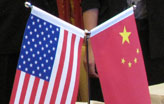Economy
Game for gambling
Updated: 2011-07-15 13:34
By Alfred Romann and Joanne Lee (China Daily European Weekly)
More Asia-Pacific Countries hop aboard gaming bandwagon
Investors have done well by building casinos, hotels and running junkets for high net worth individuals in Asia. Stanley Ho, the Macao tycoon, built a gaming empire. Sheldon Adelson, chairman and CEO of the Las Vegas Sands, entered Asia a few years ago with Las Vegas Sands and his giant Venetian Resort in Macao and followed that up with the Marina Bay Sands in Singapore. He is now looking at other possible destinations.
Macao's success as a casino destination is well known. And Singapore is quickly establishing itself with a couple of iconic developments. They are, however, only two of a number of gaming destinations across the region and, if governments have their way, more are on the way.
South Korea has long had casinos, but most focus on VIP gambling. It has 16 foreigner-only operations and one for locals. The country is now speeding ahead with five or six licenses for integrated resorts around the country. Last year, gaming revenues in South Korea were about $1.9 billion (1.35 billion euros).
Japan too is trying to get on the bandwagon and may introduce a bill at the end of this year that would allow casinos within its borders. As it is, almost half of the visitors to South Korean casinos come from Japan.
Cambodia, Vietnam and Laos are upping ante as well.
Cambodia has a number of casinos along the border with Vietnam but some are struggling. They are mostly tiny operations and only foreign passport holders are allowed in. There are 32 casinos in Cambodia at the moment, primarily along the borders with Vietnam and Thailand. These casinos are small but Cambodia's gaming sector has huge potential for growth thanks to low taxes and construction costs. A new complex in Angkor Wat broke ground late last year.
Malaysia has integrated resorts and, while groups want to limit the impact of gambling on the local population, these resorts continue to do well. Malaysia has a significant gaming market with revenues of $877 million. The most significant development in Malaysia is Genting Highlands in Pahang. The market in Malaysia is projected to grow to $1.1 billion by 2014.
In Vietnam, MGM Resorts International plans a seaside resort about an hour's drive from Ho Chi Minh City that could open in 2013. The MGM Grand Ho Tram will include 541 rooms, restaurants, a conference center and a gaming area with 90 tables and 500 electronic games.
Kith Thieng, a Cambodian tycoon, opened what he claims to be the largest luxury hotel and casino there to date.
Clashes and conflict between Cambodia and Thailand are also sending gamblers to Laos, another emerging gaming destination. As Laos progresses as a viable gaming destination, it is beginning to lure gamblers away from neighboring Cambodia.
Laos relies on tourists from China, Thailand and South Korea for its gaming revenues. Like Thailand and Vietnam, it does not permit locals to enter the casinos. There are a couple of resort casinos projects in the planning stage, including the Ban Ton Phung project in Bokeo Province and the AAC Green City. A group of Chinese investors are developing a plot of land into a major trade and tourism complex. The aim of the complex is to make it easier for Chinese tourists to cross from Laos to Thailand. It would include both a hotel and a casino.
In the Philippines, the $15 billion Manila Bay resort should be completed by 2013. A bunch of new casinos could make the country a major gaming destination in the next few years but the industry remains in government hands, controlled by the Philippine Amusement and Gaming Corporation (PAGCOR) which owns a 41-casino chain.

Specials

China-US Governors Forum
The first China-US Governors Forum is held July 15 in the Salt Lake City, the United States.

My China story
Foreign readers are invited to share your China stories.

Rare earths export quota
China kept its export quota at almost the same level as last year.